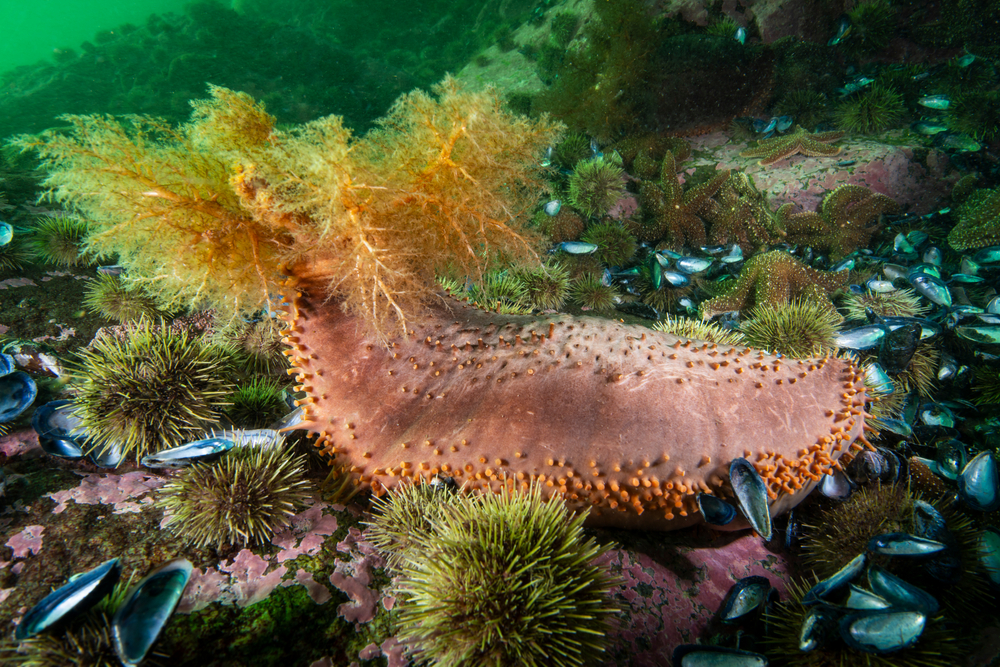Contact
Ólafur H. Friðjónsson
Research Group Leader
olafur@matis.is
Cartilage saccharides and bioactive compounds from sea cucumbers
In recent years, Matís, in collaboration with the Faculty of Pharmacy at the University of Iceland, IceProtein ehf and Reykofninn ehf, has conducted research on cartilage sugars (chondroitin sulphate) from shark cartilage and sea urchins from Icelandic smelters (Cucumaria frondosa). Studies around the world have shown a wide range of bioactivity of cartilage sugars, in vitro and in vivo, and such sugars are used as a dietary supplement, usually with glucosamine to treat osteoarthritis. Studies have also shown that cutting cartilage sugars into smaller units (oligosaccharides) can potentially increase their bioactivity in vitro. The research of Matís and partners, which was supported by the AVS Fisheries Research Fund and the Technology Development Fund, showed that cartilage sugars can be produced from shark cartilage and coarsely refined cartilage sugars from simple edema. It is also possible to produce oligosaccharides from shark cartilage with specific biocatalysts, which were prepared in the research project. The cartilage sugars show considerable bioactivity in vitro and cartilage sugars from Icelandic sea otters are particularly interesting as they show antioxidant activity, immune-regulating activity and hypoglycemic activity. The molecular structure of cartilage sugar from sea urchins is complex compared to shark cartilage sugars as they contain side chains composed of different types of sugars. The production of refined cartilage sugars from sea edema is therefore a complex process and it is anticipated that such sugars will be expensive on the market. Matís and IceProtein in collaboration with Reykofninn are now preparing further production of coarsely refined cartilage sugars from seaweed in sales and promotional activities.
In recent years, Matís ohf, The Faculty of Pharmaceutical Sciences, University of Iceland, IceProtein and Reykofninn ehf have collaborated in a research project on cartilage saccharides (chondroitin sulfate) isolated from shark and sea cucumbers from waters around Iceland (Cucumaria frondosa). The project results indicate that processing of the chondroitin sulfate from shark cartilage is a simple procedure and production of disaccharides with recombinant biocatalyst, evolved in the project, may be profitable. The chondroitin sulfate shows considerable bioactivity. Fractions of chondroitin sulfate purified from sea cucumbers, are especially interesting as they display immunomodulating activity and anti ‐ diabetic properties. However, the structure of the sea cucumber chondroitin sulfate is complex as they contain side chains composed of fucoside residues. Hence, the production and purification of chondroitin sulfate from Icelandic sea cucumbers will be a complicated procedure. Nevertheless, the results indicate that production of crude chondroitin sulfate from sea cucumber can be viable procedure.
Report closed until 01.07.2015
 The second HOLOSUSTAIN workshop „Sea cucumbers: a potential novel seafood in Europe?“ Will take place on 20 May 2022, in mixed (physical and digital) format, at NMK, Ålesund, Norway.
The second HOLOSUSTAIN workshop „Sea cucumbers: a potential novel seafood in Europe?“ Will take place on 20 May 2022, in mixed (physical and digital) format, at NMK, Ålesund, Norway.

